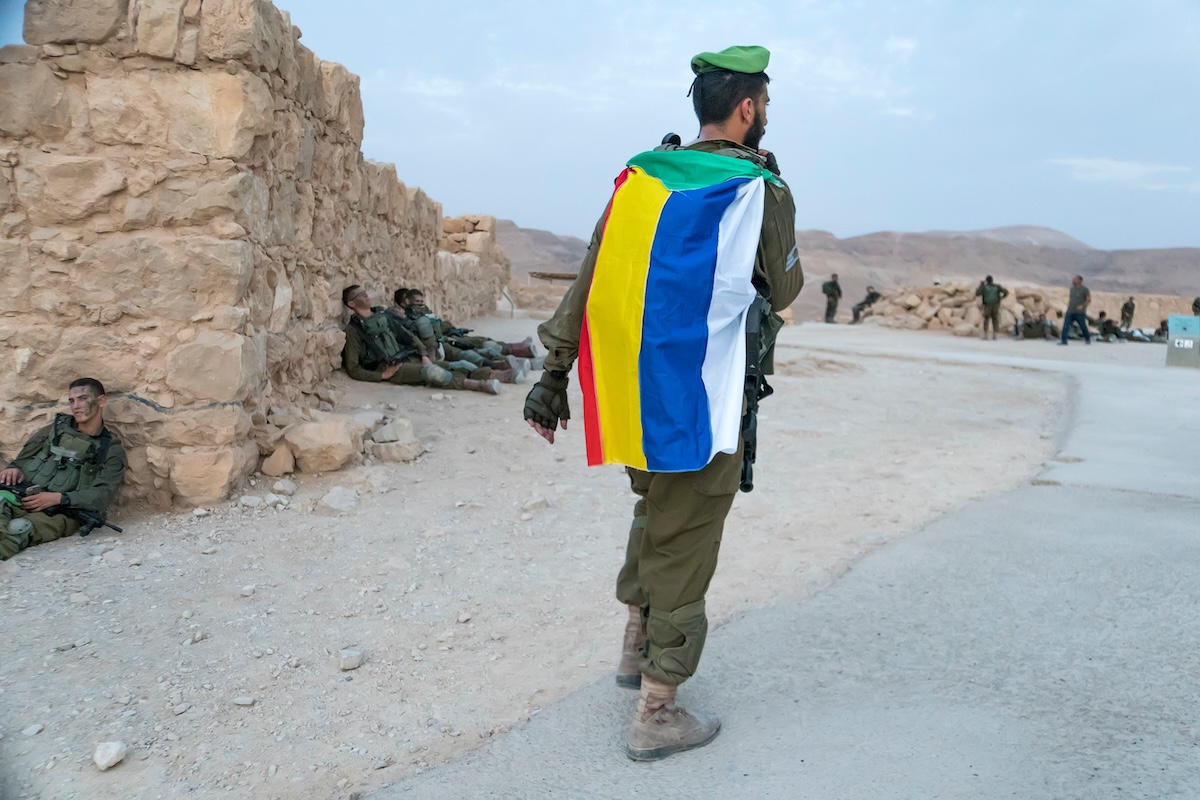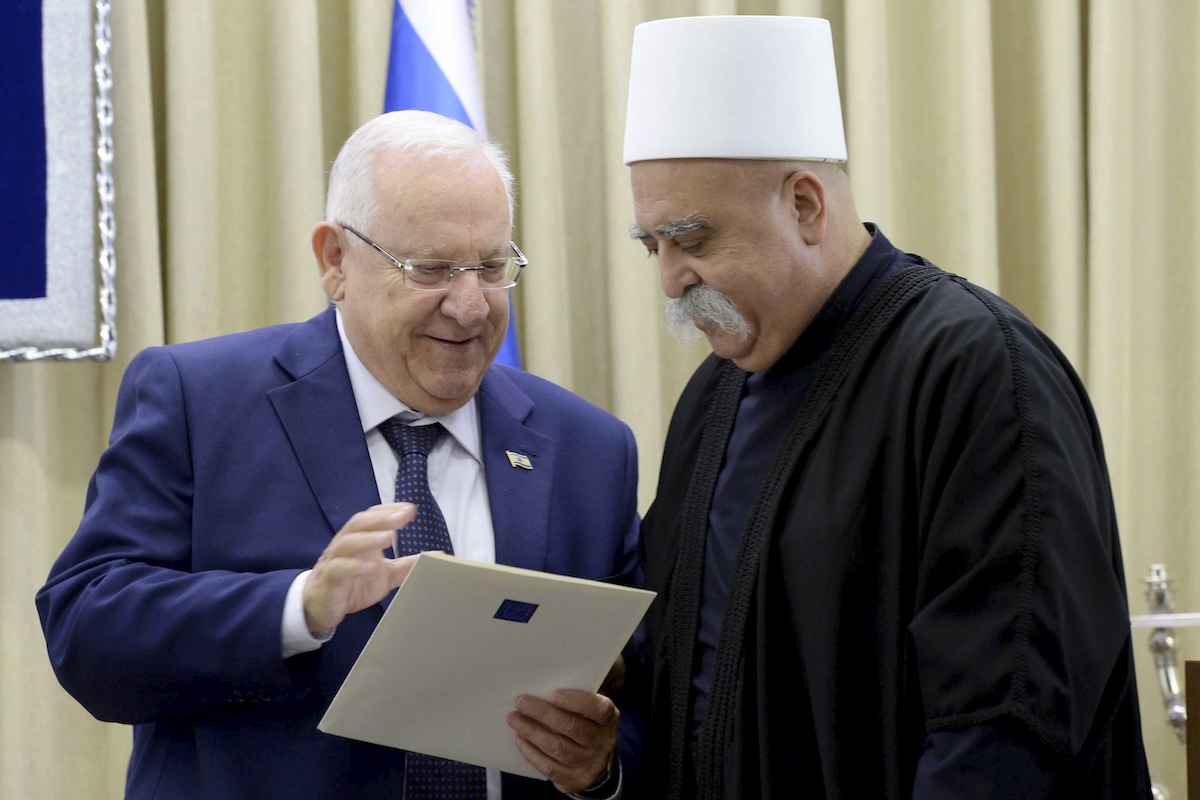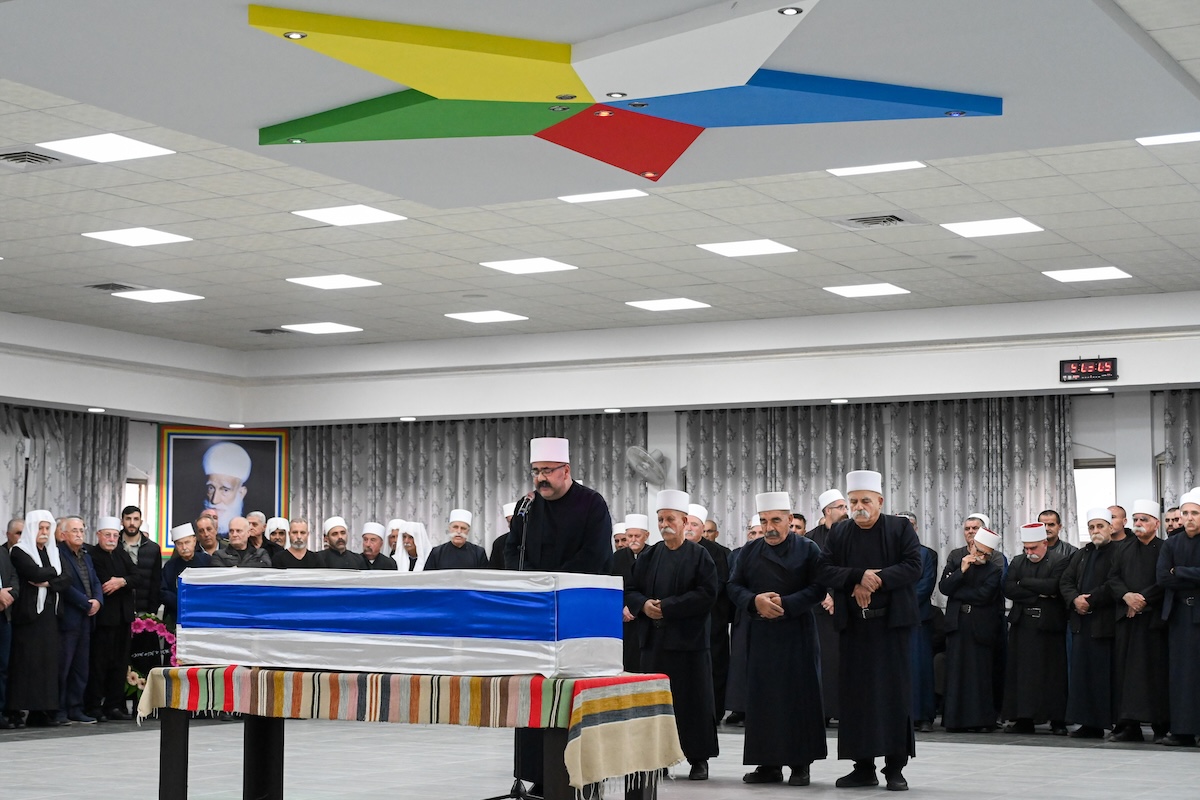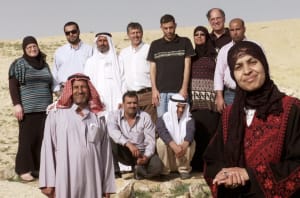Who are the Druze in Israel?
The Druze have become well-known for valor and excellence in their service defending Israel

You might reasonably assume the community in Israel with the highest percentage joining the IDF would be Jewish but you’d be wrong. The Druze community has the highest rate of enlistment, with 80% signing up to serve in Israel Defense Forces, often in combat units.
The Druze have become well-known for valor and excellence in their service defending Israel, often reaching high ranks and entrusted with great responsibility. In order to understand this phenomenon, it helps to understand a little about who the Druze are, where they came from, and what they believe.
Like Bedouin Arabs, the Druze speak Arabic and also live in other countries throughout the Middle East, but are distinct in many ways. They have their own religion, much of which seems shrouded in mystery for reasons that will become apparent.

Some believe the Druze religious traditions originated in Egypt as an offshoot of Islam, although the Druze are no more Muslim than Mormons are Christian. What we do know is that the Druze religion was established during the 11th century C.E., incorporating ideas from the three major religions: Islam, Judaism and Christianity. Both the Bible and the Quran are considered their holy books, along with their own writings like the “Epistles of Wisdom.”
The Druze prefer to call themselves al-Muwaḥḥidūn, meaning the monotheistic ones, or unitarians. The name “Druze” is from an early proponent of their religion who is viewed as a heretic today called Muhammad bin Ismail Nashtakin ad-Darazī, perhaps similar to the way in which the first disciples of Jesus were labeled “Christians” (meaning “little Christs”) by detractors. Welcome or not, the labels Druze and Christian are the names that have stuck over time.
Dressing somewhat similarly to Muslims, Druze women traditionally cover their heads and the men wear long tunics but with distinctive baggy trousers and turbans.
The esoteric religion esteems a number of biblical characters as prophets including Abraham, Moses, Jesus, and John the Baptist, and also honors Muhammed, the founder of Islam. They also revere a number of ancient Greek philosophers as prophets, such as Socrates, Plato and Aristotle. Alexander the Great is also included in this list but the greatest honor seems to be reserved for Jethro (who they call Shu’ayb), the father-in-law of Moses.
In 1942, Sunni Muslims from Jerusalem threatened to take control of the tomb of Jethro in Tiberias, Israel. This aggression resulted in the Druze siding with Jewish forces when five Arab nations attacked the newly-formed state of Israel in 1948. The Encyclopedia Britannica states that this as the reason the Druze have been loyal to Israel ever since, however, there is also a religious reason. "Each Druze is connected by theology to the land that permits him to live there. It is an unshakeable connection," the political leader of the Druze village of Hurfeish, Mofed Marei, explained.
Theology and the values of the Druze religion are of great importance in the community. Nearly every Druze (99%) believes in God and, of that number, 84% say they are absolutely certain in their belief, according to Pew Research poll.
Unlike most other religions that have special holy days, set liturgy and prayers, and obligations for pilgrimage, the Druze aim to be connected to God at all times and in all places. However, only a quarter of Israeli Druze would say they pray every day, and a similar number attend services every week. It is extremely rare for a Druze person to change their religion, although there have been a small number who became Christians, including one who became a pastor in Israel.
The Druze tradition values mysticism and dreams, holding to reincarnation as part of the belief system. Having endured considerable persecution for their faith, the Druze have responded by shutting the gates to outsiders and have remained a closed community since 1044.
Marriage remains almost exclusively between members of the Druze community and they do not proselytize or seek to win converts. In fact, the details of the religion are closely guarded secrets which can only be learned by Druze men over the age of 30. These select few are known as ʿuqqāl (“knowers”), once initiated. Though a very tight-knit community, the Druze are typically welcoming and hospitable, famous for their restaurants, special Druze flatbreads and hummus. Israelis and tourists alike often travel to Druze villages specifically to enjoy the food.
There are approximately one million Druze living in different countries across the Middle East, primarily Lebanon and Syria, with 150,000 in Israel today making up just 2% of Israel’s population. Most Israeli Druze communities are in the north of Israel, on Mount Carmel, in the Galilee region and up in the Golan Heights.

With fellow Druze living just over the border in Lebanon and Syria, some literally within earshot, the political situation can cause a lot of tension for families separated by borders and military alliances. A few Druze communities in the Golan Heights have chosen to relinquish their Israeli citizenship following the annexation of the area from Syria, but these represent a small minority.
Intelligence, soul, word, proceeding, and following are five key values of the Druze way of life, based on the book “Epistles of Wisdom” and there is also an strong emphasis on the importance of honesty in the culture.
Over the seven decades of Israel’s existence, the Druze have won a well-deserved reputation for faithfulness and integrity, as well as valor in defending the nation. Druze soldiers are often promoted to high ranks within the army and given great responsibility. Because of their mother tongue being Arabic, Druze soldiers have been able to play a great contribution at Israel’s borders and at controversial sites, such as the Temple Mount in Jerusalem, where language fluency can ease tensions, and even save lives.
Not only are Druze soldiers protecting Israel physically, but pro-Israel activists like Mansour Ashkar eloquently present a verbal defense of Israel online while fellow Druze soldiers battle on the frontlines. As Israel seems to be drowning in a sea of accusations of genocide and apartheid from all around the world, it’s ironic that some of the bravest defenders of the nation are Arabs from within our own borders.
In a recent post responding to Roger Waters who criticized Israel for not giving Arabs equal rights, Ashkar said, “I grew up as an Arab in the Middle East, I was born and raised in an Arab village, I lived in Gaza, I lived in Ramallah, I lived in a Jewish city, I lived in a Christian city, I walked the whole land of Israel and Jordan. Which rights don’t they have?”
To explain the reasons that checkpoints and the security barrier were erected following the suicide bombings in the time of the intifadas, he added: “My people, the Druze, are Arabs. The Druze lived in Israel when the Jews came back to the land, just like the Muslims, the only difference is that the Druze did not try to kill the Jews. They actually said let’s live together, you respect me, I respect you, let’s share this land together… and they agreed. To this day the Druze are an Arab group in Israel that enjoy all rights just like any other citizens in Israel.”
He explained how Druze people were found in every sector of society, enjoying all the benefits of every other Israeli citizen.
A number of Israel's Oct. 7 heroes were Druze, including Lt.-Col. Salman Habaka, a tank commander who was praised for being one of the first soldiers to bravely respond to the attack on Kibbutz Be’eri. Tragically, he was killed in action. Before his death, he told journalists: “The moment that is etched in my memory is that I am driving on the roads and realize that I am going to enter an Israeli community where there are cowards who had taken advantage of the holiday to enter the community, who killed, butchered, and kidnapped elderly, children and babies.”

Habaka is the highest-ranking casualty of Israel’s ground offensive in Gaza. The Druze community has lost 10 soldiers in the ongoing Swords of Iron War against Hamas terrorists in Gaza. Most of those who perished were in their 20s: Maj. Jalaa Ibrahem (25); Captain Wassem Mahmoud (23); Master Sergeant Anwar Serhan, 26; Maj. Jamal Abbas (23); Lt-Col. Alim Abdallah (40); Lt-Col. Salman Habaka (33); Staff Sergeant Ali Malik Harb (19); Staff Sergeant Daniel Rashed (19) and Sergeant First Class Jawad Amer (23).
The brother of Lt.-Col. Saad recounted his bravery: "He evacuated his soldiers and went back alone", adding, “He sacrificed himself so they don't do to us like they did in the south." He died fulfilling a mission "to stand up and defend the citizens of Israel."
When visiting some of the bereaved families in the Druze village of Julis, Israeli Prime Minister Benjamin Netanyahu spoke of the deep bond between the Druze people and the nation of Israel, calling it “A covenant of blood and a covenant of life.”

Jo Elizabeth has a great interest in politics and cultural developments, studying Social Policy for her first degree and gaining a Masters in Jewish Philosophy from Haifa University, but she loves to write about the Bible and its primary subject, the God of Israel. As a writer, Jo spends her time between the UK and Jerusalem, Israel.
You might also like to read this:














